By Tyler Dean
Being a fan of both Game of Thrones and the A Song of Ice and Fire novels it’s based on can be a process of constant equivocation. On the one hand, the books are as close as I have to a sacred text (and the old adage that “the book is better than the movie” doesn’t particularly need more defending). On the other, the process of adaptation is incredibly difficult and no book really gives a road map for how it should translate to screen. I tend to be an apologist for the show—or at least, I want to figure out why a change was made, especially when it rankles me.
At the end of the penultimate season, it’s clear the show is making a dash for the endgame, tidying up storylines, collapsing its cast, and generally getting ready for a finale. The books have been largely left behind, both because the showrunners have ground through all the currently available plot and because the ripple effect of minor changes now places most characters on completely different tracks than their literary counterparts.
My main interest here is to look at the ways in which the process of adaptation the books has necessarily altered the story and trying to find places where those deviations both work brilliantly and fall short. Needless to say, my ideal Game of Thrones might have taken some different paths, but I’m every bit as interested in being pleasantly surprised by the showrunners’ choices as I am in being disappointed by their literary calumny.
What follows below is a look at four different issues that plague the process of going from page to screen, and some unexpected winners and losers of coping with the process. It is by no means a complete assessment of that process, but it includes some of what I consider to be the most illustrative examples, as well as some personal favorite talking points.
Aging Child Actors
Winner: Sansa Stark / Loser: Arya Stark
The show has benefited a lot from Nina Gold’s spectacular casting abilities and nowhere is that clearer than with her child actors, most of whom have been stand-outs even among the already luminary cast. One problem with casting child actors (aside from the inability to know whether or not they will grow into talented adults) is the constant aging process that runs faster than seasons can keep up.
The timeline of Game of Thrones is fairly vague and the books they are based on cover about two-and-a-half to three years from the equivalent start of Season 1 to the end of Season 5. The fact that Sophie Turner, originally twelve when the pilot was filmed, turned eighteen on the show by the time her book equivalent was barely thirteen might have presented a problem for the showrunners. Instead, Sansa Stark has become one of the most compelling characters in the series, largely by virtue of her character being allowed to have adult responsibilities, plotlines, and triumphs.
The Sansa of the novels is painted almost identically to the Sansa of the show, but, being thirteen, there is very little chance for her to have agency in a world that largely only allows sexually mature women to have any modicum of power. Having an older Sansa both wed Ramsay Bolton and then take power as the Lady of Winterfell only makes sense for a character who is reasonably within the age of majority (and would have caused even more of a furor among show-watchers, given the already uncomfortable depiction of violent rape in that plotline). Instead, her rise from perpetual political pawn to revenge-taking, justice-minded badass has been one of the show’s great triumphs at a time when book-readers still have only gotten to see Sansa as a character being groomed for political action later.
By the same token, Arya has suffered quite a bit in that transition. Maisie Williams does an excellent job, but, in aging her up to keep pace with the actor that portrays her, Arya has lost a lot of what makes her character compelling in the novels.
Arya goes from eight to ten in the novels thus far, and George R.R. Martin walks right up to the line of irredeemability with her. Always on the run or in the custody of some of the more terrible monsters in Westeros, Arya is both burgeoning, revenge-minded sociopath, and little girl who brings child logic to her quest. The novels’ version of her infamous hit list highlights her childish sensibilities as it includes both monstrous personages (like the Mountain and Meryn Trant) and trivial ones (like her petty boss at Harrenhal). Her plotline in Season 7 put this mismatch front and center as her arguments with Sansa increasingly relied on the stunted, overly simplistic braggadocio that would have sounded sad and broken coming from a ten-year-old, and incomprehensible in the mouth of a twenty-year-old. Arya seems unbelievably naïve in the world of a show, which is a strange thing to say about an adult, orphaned assassin with Tywin Lannister for a one-time tutor.
No Strict Point of View
Winner: The Baratheons / Loser: The Martells
Martin’s novels are told in tight third-person that rotates between set narrators. Up until the fourth book, these narrators have more-or-less an equal share of chapters dedicated to them and Martin is strict about leaving anything they wouldn’t witness off the page. This occasionally results in major events being rumored rather than on the page (example: the Battle of the Green Fork) and a very limited perspective when it comes to understanding the internal thoughts of the non-POV characters.
In the first season, the showrunners used their larger scope and ability to see things we couldn’t to great effect. Nearly all the TV critics I’ve read refer to the scene between Cersei and Robert as one of the best in the series, and it works because the writers can explore the previously opaque minds and motivations of those two characters, and lend them some pathos not seen in the novels.
Nowhere does this hit home better than with the exploration of the Baratheons. One need only look to all the “Stannis the Mannis” memes out there to see that a perennially hated character from the novels came to life on the show once we had the ability to see him on his own terms. The one true King of Westeros and his family are rather flat in the novels, coming off as inflexible (Stannis), fanatically religious (Selyse), and tragically sad (Shireen). By giving us many scenes the novels couldn’t, Stannis evolved into a complicated portrait of a tired grammar savant watching his world crumble while clinging to the doomed convictions that validated him.
Likewise, Shireen (who—seriously—is only ever described as sad and ugly in the books) briefly became the heart of the show, almost (but not quite) managing to soften her hard-edged father. Even Selyse (by far the least developed of the trio) was given a more three-dimensional treatment: pining over the corpses of her dead sons, navigating the jealousy she felt for her husband’s lover when it clashed with her faith, and, ultimately, being overwhelmed by her unthinking complicity in the needless death of her daughter.
This ability to go anywhere and see anything also destroyed House Martell in the HBO adaptation. David Benioff and D.B. Weiss severely altered the Martell plotline for the show, in large part because the novels treat it as a labyrinthine maze of misconceptions that would be difficult to play out on screen.
While we never get Arianne, the central character of the novel’s Dornish storyline on the show, we do get a little bit of her father, Doran. The High Lord of House Martell is presented (identically in the show and books) as a weak-willed, passive, disabled old man who cannot be bothered to exact any semblance of revenge on the family that murdered his brother, sister, niece and nephew. The difference between the two versions is the shocking twist that the novel version of Doran is actually a subtle schemer who has been playing at weakness for decades to fool his enemies into complacency. Nearly all of this plays out through Arianne’s closely-held point of view that prevents the reader from understanding the intricacies of Doran’s plot until it’s been set in motion.
This would read as a kind of cheat on screen. Movie and television audiences typically don’t go in for stunning reversals that play upon the position of the camera and unreliability of the narrator, and the showrunners turned away from it in favor of keeping Doran’s ambitions in line with his outward demeanor (an easy but boring choice) and transmuting Arianne’s quest for justice and recognition into Ellaria’s desire for revenge. Mostly, the Martells became a kind of punching bag for various Lannisters and, with the exception of Indira Varma’s talents (still somewhat wasted), relegated them to the dust heap of the show’s gigantic cast.
Characters Robbed of Purpose
Winners: Davos Seaworth and Tormund Giantsbane / Loser: Jaime Lannister
The A Song of Ice and Fire novels are masterfully plotted with a great number of moving parts and a dozen or so narrators being moved into position to witness specific events. As discussed in the above point, the show took great advantage of television’s abhorrence of non-omniscient point-of-view, and several characters whose primary purpose in the novels is to be at a certain place at a certain time found themselves with considerably less to do.
This proved to be an unexpected boon to both Liam Cunningham’s Davos Seaworth and Kristofer Hivju’s Tormund Giantsbane. Davos is a narrator in the novels and plenty interesting, but he primarily exists to give the reader a window into Stannis Baratheon’s court. Freed from the need to bear witness to the false prophet of the Lord of Light, Davos has had very little to do from a mechanical standpoint for the last two seasons, but he remains the warm, plain-spoken heart of the show, all the more useful to the showrunners because he has nothing but free time plot-wise.
By a similar token, everyone’s favorite Ginger, Tormund Giantsbane, has had very little to do since Season 4 (other than remind people that wildlings exist). Nearly every plot point involving him also involved one or two other main characters and nearly all of his presence since Season 5 has been as comic relief. That said, he is one of the most entertaining characters on the show, especially in his role as unwelcome suitor to Brienne of Tarth. The Tormund of the novels, though similarly characterized, plays a small, specific role as one of the few wildlings who refuses to join Stannis’s army south of the Wall. The showrunners combined the roles several other wildling chieftains in order to keep Hivju front and center.
The butterfly effect of Benioff and Weiss’ slightly laxer plotting has, however, resulted in some characters whose presence feels tacked on as a result of their relative lack of plot. No one is a bigger victim of this than Jaime Lannister who, for the first three seasons of the show (and the whole of the third book) has one of the most fascinating redemption arcs of, frankly, any character on television. The fourth novel in the series gave Jaime a quieter, more introspective plot where he serves as a window onto the devastation in the Riverlands and ruminates about his agency now that he has been robbed of his sword hand. It’s compelling stuff, but that narrative also would have been extremely difficult to film since the vast majority of it either has Jaime acting as a passive cipher, or brooding silently while he reflects.
Without that narrative, Jaime has spent Seasons 4 through 7 bouncing around Westeros, losing and regaining faith in his sister and generally having his storyline reset with each new season. With this penultimate season finale, it is beginning to feel like Jaime is finally done with Cersei (thereby giving him the ability to continue his redemption story with Brienne) but it may be too late. Jaime’s arc could never advance past the point where a return to his narrative start point was more than a scene or two away and he has suffered immensely. He may have had one of the show’s most compelling narratives about wrestling with contradictory vows and attempting to pinpoint what makes a man honorable, but it is doubtful the show can land it, given those four years of equivocating that separate this latest iteration of Jaime from his last purposive moment.
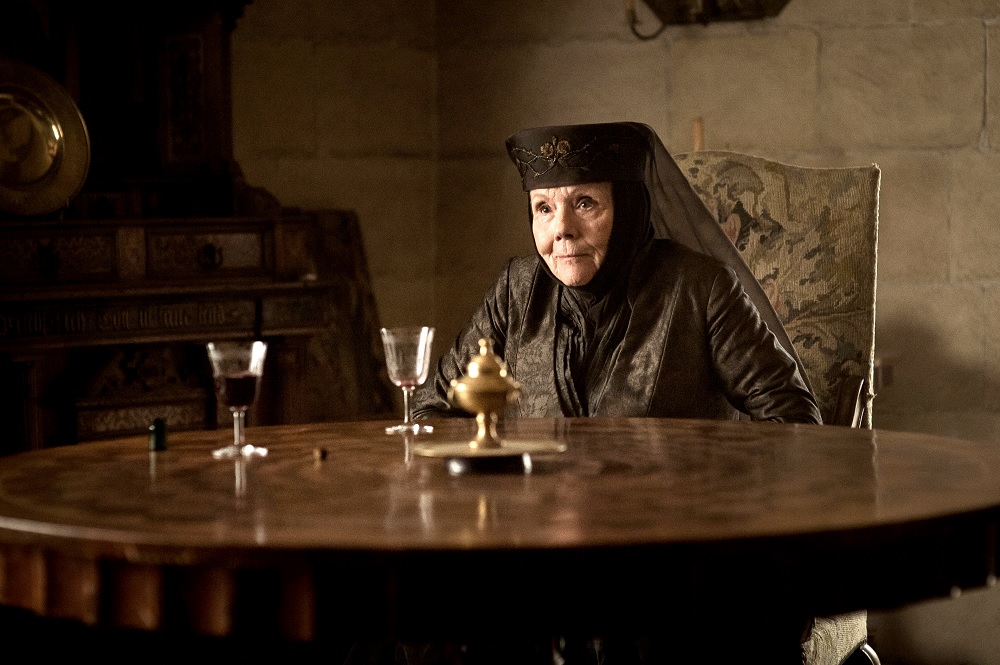
Casting Amazing Actors
Winner: Olenna Tyrell / Loser: Petyr “Littlefinger” Baelish
As stated above, Nina Gold has an amazing talent for bringing venerated actors into the show. One might think that this can only be an advantage when adapting a series of beloved books, but there are problems with it when it requires a character to be unduly prominent in order to be worthy of the person playing them.
Olenna Tyrell is a memorable but minor character in Martin’s novels. She comes for the wedding, poisons Joffrey and leaves for Highgarden once her granddaughter Margaery’s marriage to Tommen is secure. The show had the great fortune of casting iconic British actor, former Bond Girl, and The Great Muppet Caper alumna Diana Rigg in the role.
The show engaged in some of its trademark travel time magic to bring Rigg back to the fore in Seasons 5, 6 and 7, oftentimes for only a few scenes. Game of Thrones was richer for her presence and deviated significantly from the books in order to put Rigg’s acid charms on display as much as possible. Her final speech has been so thoroughly memed and re-memed that it has earned a place as one of the great moments of Game of Thrones, a place that is normally reserved for moments devised by George R. R. Martin.
Another casualty of season 7, Littlefinger was an early fan favorite and the casting of The Wire alum, Aiden Gillen, both exalted and, ultimately, defanged the character. Gillen was touted in early seasons as a bravura actor and scenes were written for him to be able to chew the scenery with malicious glee.
This also presented a crisis for the character. In the novels, though his plot arc remains essentially unchanged, Littlefinger is a presented as a character whose chief advantage is his obsequiousness. He is a friendly, glad-handing, bearer of good news who escapes notice by virtue of his avowed lack of ambition.
Compare this to the show’s Littlefinger who, a Season 1 Catelyn Stark is quick to point out, “nobody likes.” Gillen’s iconic Season 1 scene where he lays out his diabolical plot to overturn Westeros’ culture of toxic masculinity (and replace it with a different kind of toxic masculinity) while Ros and Armeca touch one another on his command was the kind of bravura moment that would be tempting to a wide variety of actors. The show doubled-down on this in season three with his oft-quoted “chaos is a ladder” speech. Both are examples of scenes written to highlight the considerable talents of an actor at the cost of a believable character.
Later seasons saw Littlefinger continuing to crow his lack of trustworthiness to anyone who would listen, raising the ever-important question: why does anyone listen to him? His final plot, to drive a wedge between the Stark sisters, mostly baffled viewers who could not fathom that a man so nakedly ambitious and false would ever get the better of either Arya or Sansa. The showrunners continually gave Gillen showcases for his moustache twirling, but it undermined the idea that anyone would take his advice seriously. Ultimately, the Littlefinger of the novels would have to be played by someone who registered as the most minor and banal of recurring characters—a tough sell for a casting director trying to fill a pivotal, if slow-moving role.
These feel like some of the most pertinent examples of how Game of Thrones managed to both bungle and elevate its source material. I think there’s a lot to be said for the complexity of the process especially given the hundreds of characters, dozens of locations, and still unplotted nature of the last two novels.
(Don’t get me started on Lady Stoneheart, though.)
Tyler Dean is a literature professor at Whittier College and Pasadena City College. He also runs the pop culture site Everything is Gothic.
The post In the Game of Adaptation, You Win or You Die appeared first on Watchers on the Wall.
Via http://watchersonthewall.com
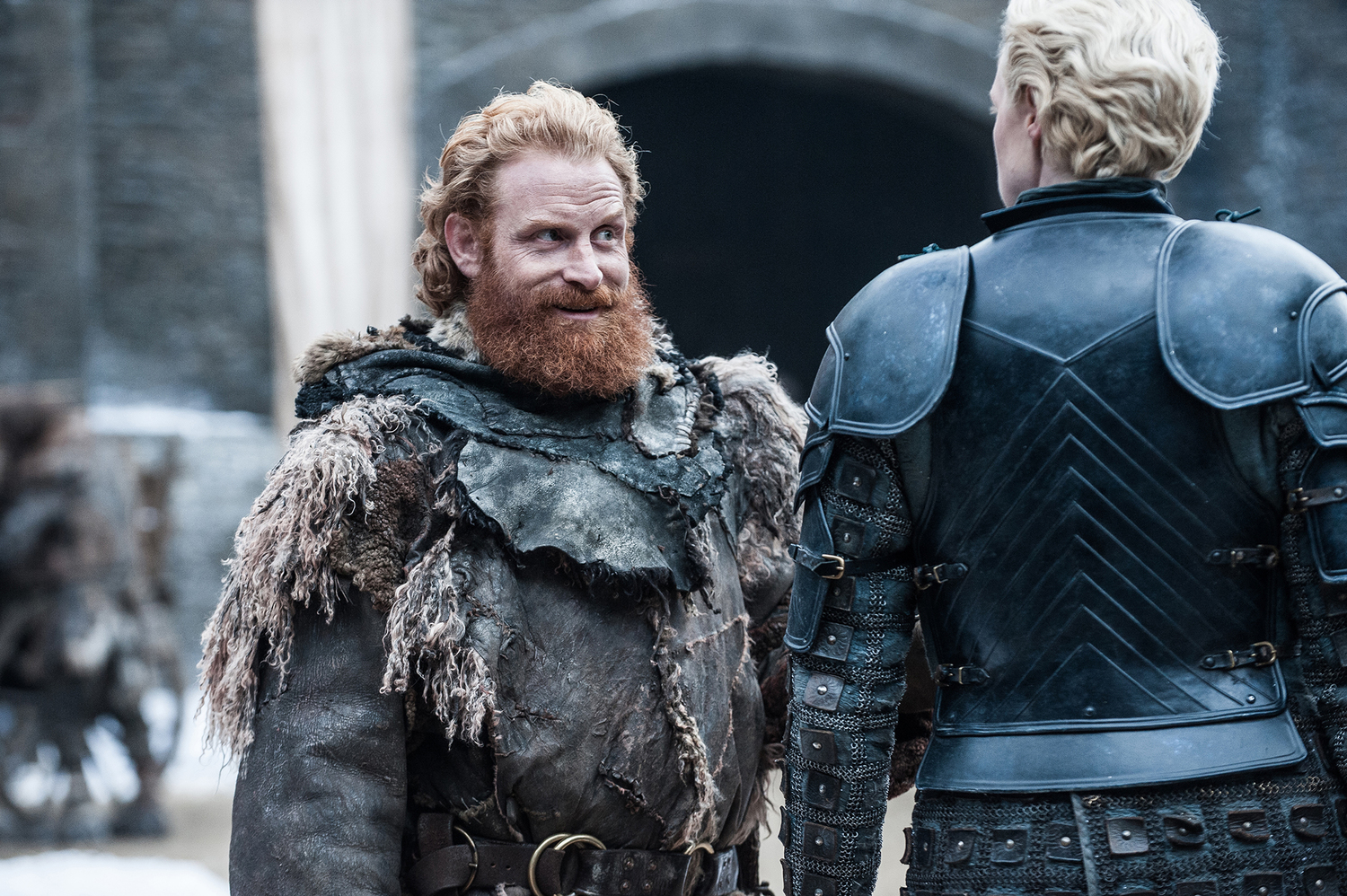
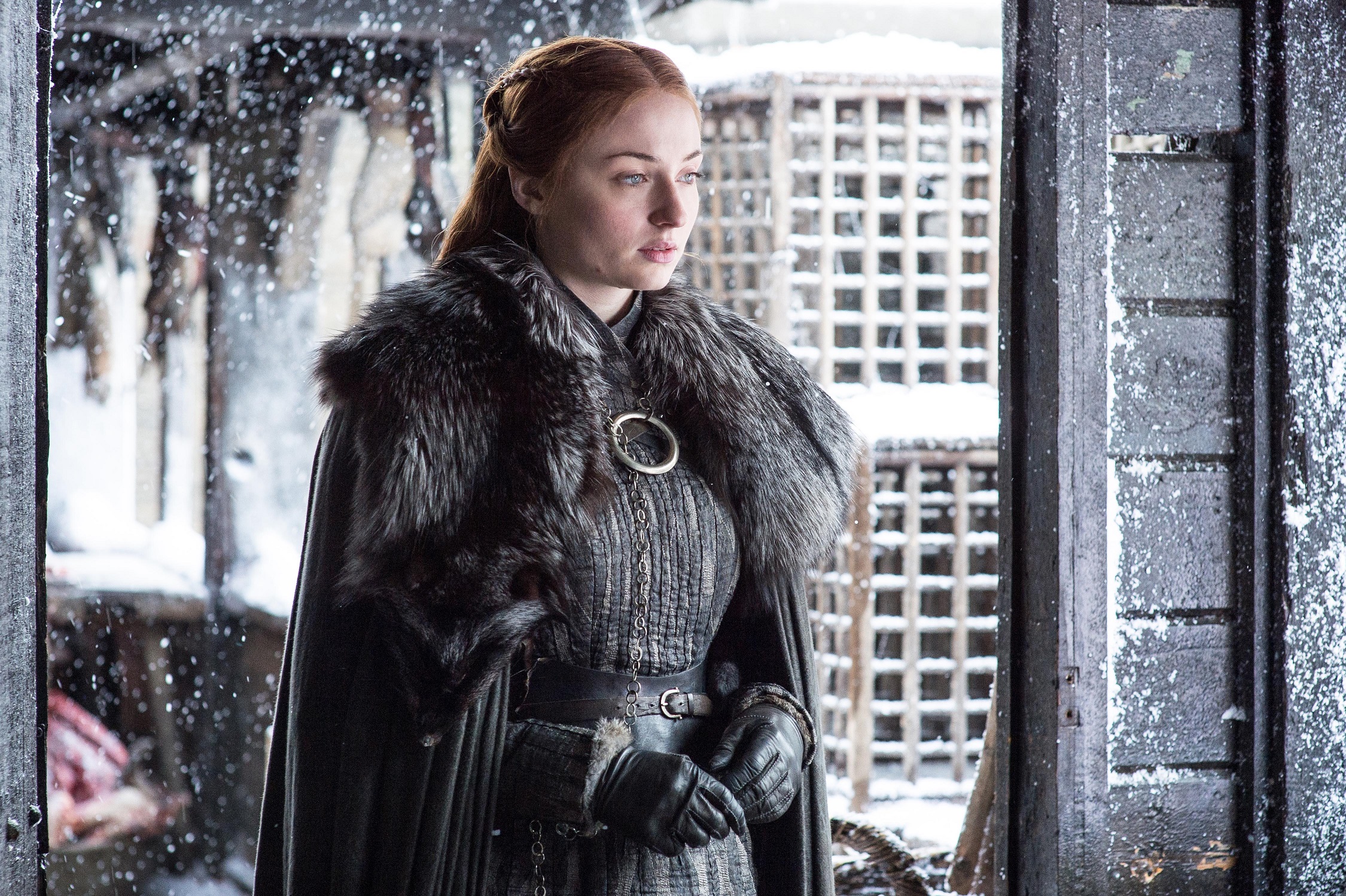
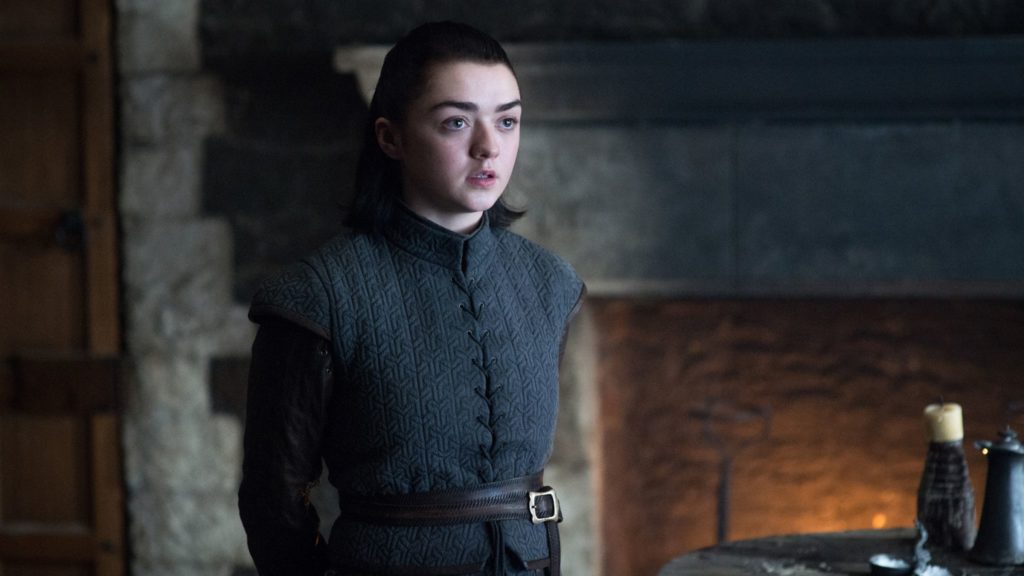
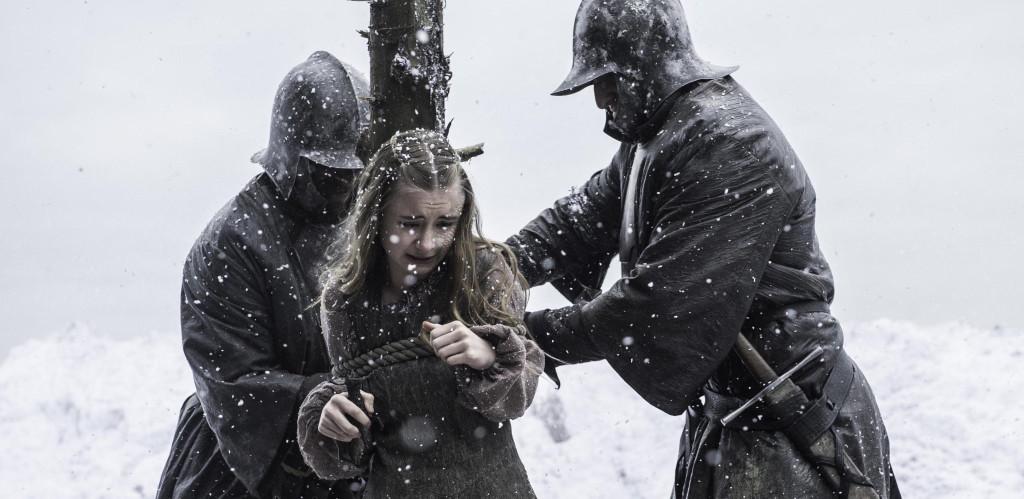


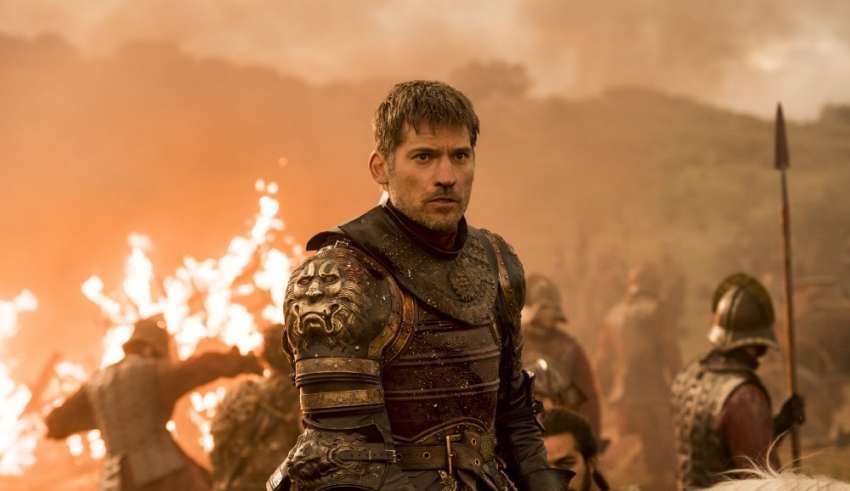

No comments:
Post a Comment